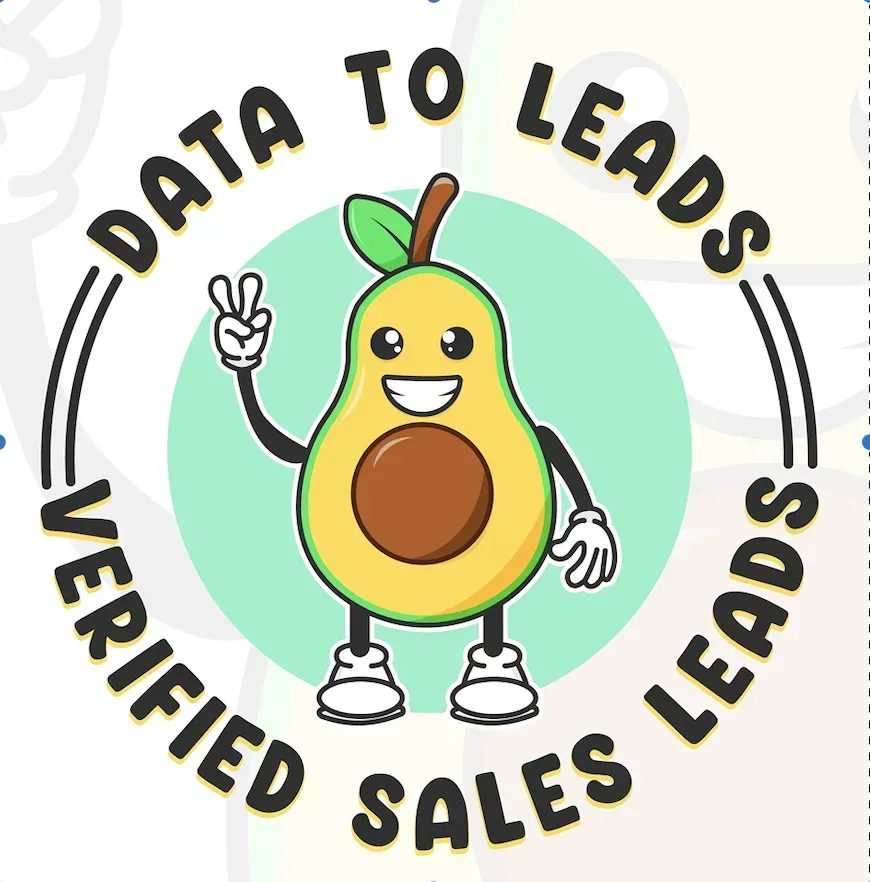What are B2B Sales?
Business to Business Sales
Introduction
In the world of commerce, selling isn't limited to consumer transactions. Many enterprises thrive by catering to the needs of other businesses, a domain known as Business-to-Business (B2B) sales. This arena is distinct from Business-to-Consumer (B2C) sales, characterized by higher stakes, longer sales cycles, and relationships that can significantly influence a company's trajectory.
This comprehensive guide delves into the essence of B2B sales, providing definitions, real-world examples, effective strategies, and insights into future trends that can elevate your sales team's performance in 2024 and beyond.
1. What is B2B Sales?
B2B sales involve transactions where a business sells products or services to another business. Unlike B2C sales that target individual consumers, B2B sales focus on fulfilling the needs of organizations, departments, or teams.
Difference Between B2B and B2C Sales
The primary difference lies in the buying behavior and decision-making process:
- B2B Sales: Longer sales cycles, higher-value transactions, involvement of multiple decision-makers, and extensive negotiations.
- B2C Sales: Shorter sales cycles, lower individual transaction values, and decisions often made by a single consumer.
In B2B sales, companies make significant investments that impact their operations. The decision-making process is thorough, often involving committees that assess return on investment (ROI), integration capabilities, and long-term strategic alignment.
2. Examples of B2B Sales
B2B sales vary across industries, each with unique approaches and methodologies. Here are some illustrative examples:
Manufacturing Industry
Consider a car manufacturer needing specialized tires for a new electric vehicle model. Instead of producing the tires themselves, they partner with a specialized tire supplier. This collaboration involves complex negotiations, technical integrations, and often long-term contracts—a quintessential B2B sales scenario.
Technology and IT Services
Technology firms frequently engage in B2B sales by offering software solutions or IT infrastructure. For instance, a cybersecurity company provides protection against digital threats to other businesses. They not only sell the software but also educate clients on cybersecurity importance, showcase superiority over competitors, and offer ongoing support.
An example is Salesforce, a leader in B2B sales within the tech industry. Salesforce offers Customer Relationship Management (CRM) software to businesses, providing different packages with varying functionalities and costs.
Financial Services
Banks and financial institutions engage in B2B sales by offering corporate loans, investment services, and insurance policies tailored to business clients. These products are customized to meet specific financial situations, requiring deep understanding of the client's business model and financial health.
Healthcare and Pharmaceuticals
Pharmaceutical companies typically sell to hospitals, clinics, and pharmacies rather than directly to consumers. B2B sales in this sector require navigating regulatory environments, negotiating contracts with large healthcare providers, and maintaining long-term relationships for ongoing supply agreements.
3. Types of B2B Sales
B2B sales encompass various forms, each with distinct strategies and challenges:
Product-Based Sales
Involves selling tangible goods to other businesses, such as office supplies or industrial machinery. The focus is on volume, quality, and consistent supply.
Service-Based Sales
Centers on selling intangible services like consulting, maintenance, or IT support. Emphasis is placed on expertise, reliability, and the ability to meet client needs.
Software and SaaS Sales
A subset of service-based sales where companies offer software solutions, often on a subscription basis (Software as a Service). Requires technical knowledge and demonstrating how the software addresses specific business problems.
Solution-Based Sales
Takes a holistic approach by combining products and services to offer comprehensive solutions to client problems. This requires deep understanding of the client's business and the ability to customize offerings.
4. How Does B2B Sales Work?
B2B sales are characterized by:
Long Sales Cycles
Transactions can take months or even years due to the complexity and high stakes involved.
High-Value Transactions
Deals often involve significant investments that can transform a buyer's operations, necessitating careful deliberation.
Multiple Decision Makers
Sales processes involve engaging with various stakeholders—procurement managers, IT directors, CFOs—each with unique concerns and criteria.
B2B Sales Funnel
The sales funnel represents the customer's journey:
- Awareness: Prospects learn about the product or service.
- Interest: Prospects engage more deeply, attending webinars or initial meetings.
- Consideration: Prospects evaluate options against competitors.
- Intent: Prospects signal readiness to purchase, requesting proposals or pricing.
- Evaluation: Final negotiations and assessments occur.
- Purchase: Contract signing and transaction completion.
B2B Sales Process
The sales process includes:
4.1 Define Total Addressable Market (TAM) and Ideal Customer Profile (ICP)
TAM: The total revenue opportunity available in the market.
ICP: Detailed description of the perfect customer, including industry, company size, location, and pain points.
4.2 From Leads to Post-Sale
- Lead Generation: Identifying potential buyers through various methods.
- Prospecting: Researching leads to determine suitability.
- Qualification: Assessing if leads have the budget, authority, need, and timeline (BANT).
- Demonstration: Showcasing the product or service to meet client needs.
- Negotiation and Closing: Discussing terms, addressing objections, and finalizing agreements.
- Post-Sale Follow-Up: Ensuring client satisfaction and nurturing for future opportunities.
5. B2B Sales Strategies
Effective strategies include:
Account-Based Selling (ABS)
Targeting high-value accounts with personalized approaches.
Example: A software company customizes pitches for a large retail chain by addressing challenges specific to IT, operations, and finance departments.
Consultative Selling
Acting as an advisor to help clients understand their needs and find optimal solutions.
Example: A digital services firm analyzes a manufacturing company's processes to recommend efficiency improvements.
Solution Selling
Identifying client problems and offering comprehensive solutions.
Example: A cloud storage provider addresses a law firm's data management challenges with tailored solutions.
Inbound and Outbound Sales Strategies
Combining content marketing to attract leads (inbound) with direct outreach (outbound).
Example: A cybersecurity firm publishes articles on emerging threats while directly contacting IT managers.
The Challenger Sale
Challenging customer thinking by presenting new ideas or insights.
Example: An HVAC company demonstrates to a hotel chain how outdated systems increase costs, prompting consideration of upgrades.
Value Selling
Emphasizing the benefits and value a product brings rather than just features.
Example: A CRM provider shows an e-commerce company how their platform boosts conversions and customer retention.
6. B2B Sales Team Structure
A successful team typically includes:
Sales Development Representatives (SDRs)
Responsible for prospecting and qualifying leads.
Account Executives (AEs)
Manage the sales process from presentation to closing.
Customer Success Managers
Nurture relationships post-sale, ensuring satisfaction and identifying upsell opportunities.
Sales Operations Professionals
Handle CRM management, data analysis, and process optimization.
Sales Engineers
Provide technical expertise during the sales process.
7. Metrics to Track in B2B Sales
Key metrics include:
7.1 Leads and Pipeline
- Lead-to-Opportunity Ratio: Effectiveness of converting leads to opportunities.
- Lead Conversion Rate: Percentage of leads turned into sales.
- Revenue by Lead Source: Identifying most profitable lead sources.
- Pipeline Velocity: Speed at which deals move through the pipeline.
7.2 Sales and Conversions
- Total Sales: Overall sales volume.
- Sales Win/Loss Rate: Ratio of deals won versus lost.
- Sales Cycle Length: Average time to close a deal.
- Sales per Rep: Individual sales performance.
- Average Deal Size: Average value of closed deals.
- MQL-to-SQL Conversion Rate: Effectiveness of moving leads from marketing to sales qualification.
7.3 Financial Metrics
- Net Profit Margin: Profitability after expenses.
- Customer Acquisition Cost (CAC): Cost to acquire a new customer.
- Customer Lifetime Value (CLV): Total expected revenue from a customer over time.
- Customer Churn Rate: Rate at which customers stop doing business.
8. How to Improve B2B Sales Performance
Enhancing sales performance involves continuous improvement:
Utilize B2B Data
Leverage data providers for extensive databases of potential leads, including firmographic and technographic information, to streamline lead generation and outreach.
Implement B2B Marketing
Develop content marketing strategies and utilize channels like SEO, social media, email, and events to generate inbound leads aligned with sales objectives.
Gather Customer Feedback
Continuously collect feedback to identify improvement areas in sales processes and product offerings, adapting to evolving market needs.
Invest in Sales Training and Reskilling
Regular training keeps sales teams updated on techniques, market trends, and product knowledge. Emphasize developing skills in data analysis and digital literacy.
9. Future Trends in B2B Sales
Stay ahead by embracing emerging trends:
Adoption of AI and Automation
Utilize artificial intelligence to automate processes like lead generation, customer engagement, data analysis, and forecasting, enhancing efficiency.
Enhanced B2B Databases
Access to comprehensive B2B databases will be crucial, providing detailed contact information and intent data for deeper insights.
Advanced Data Analytics
Employ predictive analytics to gain insights into customer behavior and market trends, optimizing pricing strategies and anticipating shifts.
Conclusion
B2B sales are a complex but rewarding field, essential for businesses aiming to provide products or services to other organizations. Understanding the nuances of B2B sales—from the sales process and team structure to effective strategies and future trends—can significantly enhance your ability to succeed in this domain.
By leveraging data, adopting innovative strategies, and staying attuned to emerging trends, your sales team can navigate the challenges of B2B sales and achieve sustained growth in 2024 and beyond.
For more insights on improving your B2B sales strategies, consider exploring our resources on B2B Lead Generation and Sales Training Programs.
Stay ahead in the industry by subscribing to our newsletter for the latest updates and expert insights.
DataToLeads Resources
Existing Links
Additional Links

Top 10 Solar Lead Generation Strategies (2024)
Section 1: Redefining Solar Lead Generation for 2023
Introduction: As we move into 2023, the solar industry is experiencing a dynamic shift. How to generate solar leads effectively has become a defining factor in staying ahead in this competitive market. This is where DataToLeads comes in, offering innovative and powerful solutions that reinvent the way solar leads are acquired. Through our integration of AI automated SMS, ringless voicemail, and property records, we provide a viable and robust alternative to Facebook for solar businesses.
The Social Media Challenge: A Study published by Nature Energy in 2022 showed a decline in the effectiveness of social media as a marketing platform for the solar industry. This is where innovative solutions, like DataToLeads, prove invaluable. By leveraging rich data from property records and homeowner data, we target leads accurately, offering a higher yield of high quality solar leads.
Section 2: Harnessing Cutting-edge Technologies for Solar Lead Generation
Outbound Marketing: DataToLeads harnesses the power of AI automated SMS, ringless voicemail, and the use of platforms like Twilio, redefining lead generation strategies. We streamline the process of booking appointments and cold calling potential customers to bring incoming traffic to you.
Navigating Regulations: DataToLeads makes use of Twilio's outbound marketing surveys to strike the right balance between engagement and intrusion. This strategy allows us to filter out the perfect customers ready for solar conversion, all while adhering to regulations against solicitation.
Skip Tracing: The Secret Weapon: In the realm of lead generation, skip tracing emerges as an unsung hero. DataToLeads leverages this technique to mine accurate homeowner records, unearthing actionable data that can supercharge your solar sales. It's about discovering those few perfect customers - your high quality solar leads - within the broad spectrum of potential leads
Section 3: Understanding the Process of Data Gathering and Lead Generation
Digging Deeper into Data: The core of DataToLeads' strategy relies on accurate and precise data, obtained through skip tracing. This involves analyzing homeowner records to determine which properties are the most suitable for solar panel installations. Factors considered include the location, size of the property, and homeowner's estimated income. Using these property records in combination with a dynamic AI automated SMS system, we are able to reach out to potential customers effectively, without being intrusive.
Going beyond Cold Calling: DataToLeads believes in quality over quantity. By using a targeted approach, we aim to contact only those who show real potential in converting into solar customers. Through our innovative platform, the cold calls turn into warm calls, as the leads generated already show some interest in solar power.
Section 4: Investing in High-Quality Solar Leads for Long-Term Success
Opting for Quality: The key to long-term success in the solar industry is investing in high quality solar leads. These are potential customers who are not only interested in solar power but also have the financial capability to invest in it. DataToLeads, with its data-driven strategy, ensures that your solar business connects with these high-value customers.
Return on Investment: The upfront cost of purchasing high-quality leads might seem high, but the return on investment over time makes it worth it. A customer converted through high-quality leads is likely to remain with your company for an extended period, offering a steady revenue stream.
Conclusion: The solar industry is evolving rapidly, and keeping pace requires innovative and data-driven strategies. By investing in high-quality solar leads and harnessing the power of skip tracing and outbound marketing, your solar business can achieve lasting success. To learn more about how DataToLeads can revolutionize your approach to lead generation, visit DataToLeads.
Buy Lead Lists Below
Ask about our WhiteLabel Database and List Broker Software Tools
Contact
Info@datatoleads.com
+1 720-325-1654
Nassau County, New York


